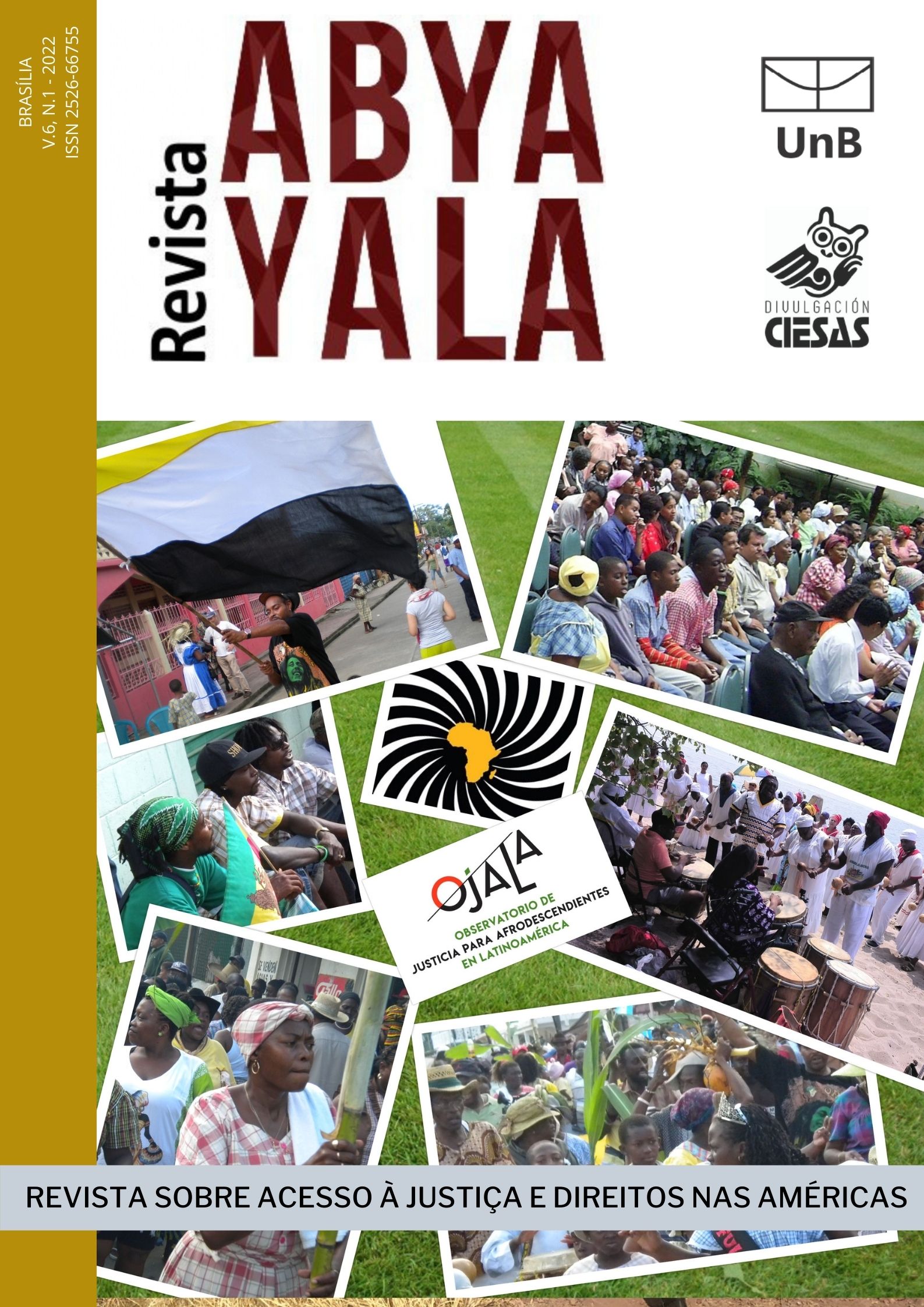RELIGIOUS INTOLERANCE, ETHNORACIAL LAW AND THE SHIFTING LANDSCAPE OF AFRO-BRAZILIAN RELIGIOUS RIGHTS IN 21ST CENTURY BRAZIL
DOI:
https://doi.org/10.26512/abyayala.v6i1.39160Keywords:
anti-discrimination law, legal activism, religious intolerance, Afro-Brazilian religionsAbstract
The legal status of Afro-Brazilian religions has changed dramatically in the past few decades. For much of the 20th century, Afro-Brazilian religions lacked legal recognition as religions. Over the past twenty years, they have become targets and beneficiaries of ethnoracial laws and government institutions fostered by Brazil’s 1988 “Citizens’ Constitution.” Still, most acts of violence on Afro-Brazilian religions fail to reach courts and even fewer are tried using the legal frameworks provided by ethnoracial law. This article examines the structural obstacles that the legal remediation of discrimination against Afro-Brazilian religions has faced over the past two decades. It argues that although religious activists' efforts have contributed to beneficial changes in the legal landscape surrounding religious intolerance, current legal understandings of religious prejudice and discrimination continue to curtail the application of anti-discriminatory law to most attacks on Afro-Brazilian religions. Looking ahead to the 2020s, these obstacles can be expected to be aggravated further by the growing influence of conservative Evangelical Christian agendas on the executive, legislative and judiciary branches of the Brazilian government.
Palabras clave: ley contra la discriminación, activismo legal, intolerancia religiosa, religiones afrobrasileñas
Downloads
References
.
Downloads
Published
How to Cite
License
Copyright (c) 2021 Abya-Yala: Journal on Access to Justice and Rights in the Americas

This work is licensed under a Creative Commons Attribution-NonCommercial 4.0 International License.
The sending of contributions to Abya Yala implies the assignment of copyright and publication to the Journal, observing the Attribution-Non-Commercial 4.0 International (CC BY-NC 4.0) adopted.
The content of the texts submitted to and published by the journal will be the sole responsibility of their respective authors.
Copyright: https://creativecommons.org/licenses/by-nc/4.0/deed.en





